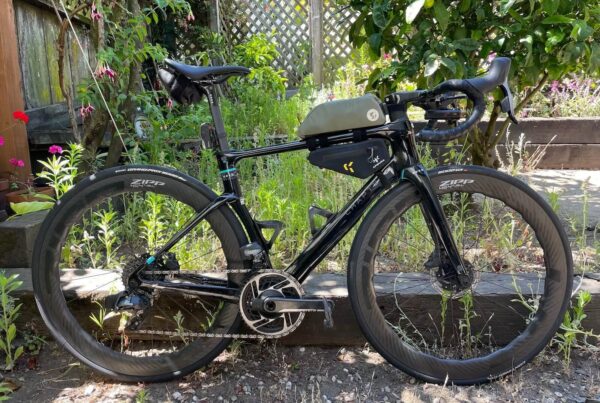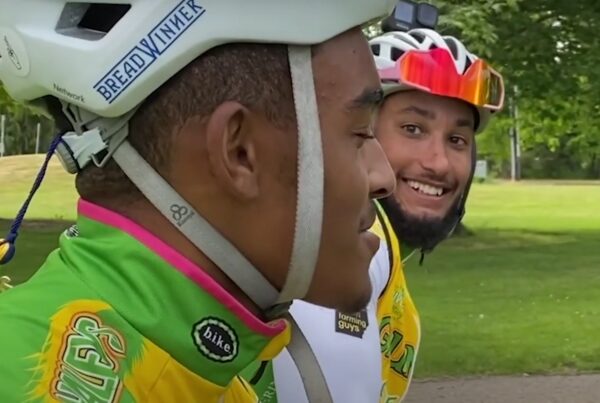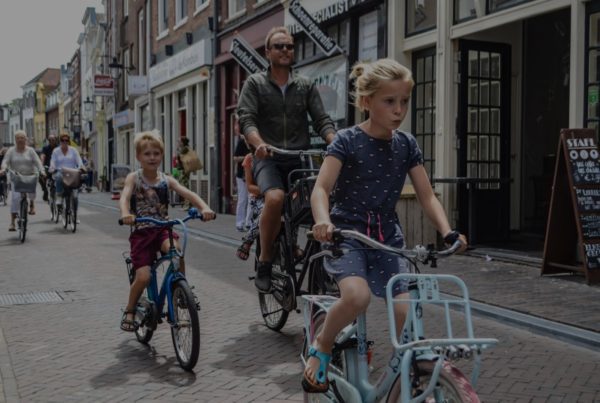This news article featuring Bob Mionske has been reproduced here for our media archives.
After 4 1/2 grueling hours, Olaf Ludwig’s margin of victory was three seconds
Robert Sullivan
It was a lovely day for a bike ride, with the wildflowers along the road glistening in the sun and bending in the breeze. But this would be no easy spin through the countryside on the outskirts of Seoul. The men’s 197-kilometer road race was 4 hours of tension and fury. “The pace was unbelievable,” said U.S. rider Bob Mionske. “The Europeans and Soviets were ferocious. I tried jumping away from the pack three times. I’d be out for 10 seconds, and I simply couldn’t hold that kind of speed.”
Through the village of Pyokche, up and over three hills, across the Kongnungch River, 142 bikes raced along at 25-plus mph. Breakaways formed early and often, but no one could shake the pack for long—that is, until the last 30 kilometers. “An Italian was leading three or four guys away but not very fast,” recalled Mionske. “I saw it, I got on it, and—bang!—this one worked.”
The breakaway grew to 11 riders, including four of the best: Bernd Grone and Christian Henn of West Germany, Djamolindin Abdoujaparov of the Soviet Union and Olaf Ludwig of East Germany. “Olaf always has a complete grasp of a race,” said Werner Marschner, 69, the cycling guru and Ludwig’s coach. “Olaf can recognize the smallest details and react to them.” Ludwig’s presence stamped this breakaway as authentic.
With three kilometers to go, Ludwig and Grone took the lead. “Those two surged for the hill,” said Mionske. “My legs were burning and so were the other guys’. We figured if you tried to go with them and couldn’t keep up, you’d be finished. We settled in to fight for the bronze.”
Ludwig briefly abided Grone’s company and then wasted him with ease. “Over the last four kilometers we were working nicely together,” said Ludwig. At one kilometer, I put on just a little sprint, and I was alone.” Grone pedaled in three seconds later.
As Ludwig was blowing kisses to the crowd, the battle for third was drawing to a frenetic conclusion. “We were really rolling,” said Mionske. “It was awful. Guys were banging wheels and careening. I yelled at a Belgian, ‘On your left!’, and instead of clearing out, he jammed left and shut down the opening.”
At the line, Mionske and Henn both thrust their bikes ahead of Abdoujaparov’s. Henn threw his a foot farther than Mionske did, so he got the bronze. Excepting the boycotted L.A. Games. Mionske’s fourth-place finish is the best by an American biker in an Olympic road race since 1912.
When Ludwig, 28, returned home to the mountain village of Gera-Thieschitz, he was greeted by his wife, Heike, and their two children, Madlen, 8, and Steven, 5. Heike handed him a glass of champagne. “We always toast that he has returned healthy and sound,” said Heike from Gera-Thieschitz. “If we can toast a victory, that’s even nicer.”



